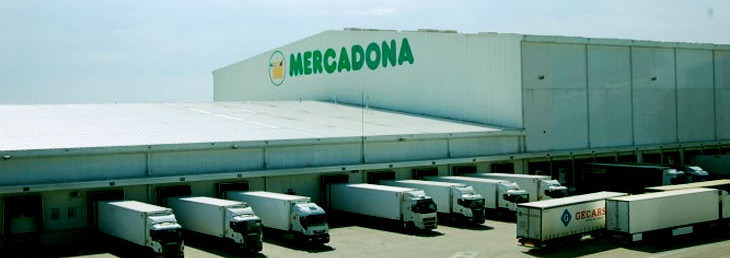Mercadona is turning its relationship with suppliers into a model

Mercadona occupies currently the first place in the distribution chain of Spanish supermarkets. Its success is the result of the company business strategy started in the early 90’s, a strategy heavily based in a customer-centric approach.
An important part of this strategy is summarized in their slogan “always low prices”. But Mercadona, who calls its customers “The Boss”, also believes that customer value is achieved not only through a policy of low prices by but also maintaining a special relationship with the customers. We already wrote about how the supermarket chain has been putting Co-innovation with customers into action for some years
But this special relationship with customers is not the only reason for Mercadona’s business model success. The Spanish supermarket chain has become one of the largest and most profitable supermarket chains within the market by also creating value for and satisfying the needs of other key stakeholders as employees and suppliers.
Its close relationship with suppliers is another key element of Mercadona’s operating model. The company changed the traditional customer-provider relationship many years ago, moving from being a tough negotiator to an association and collaboration model based on trust, mutual cooperation and stability.
Mercadona is even turning its relationship with suppliers into a model. The company has been lately focusing on a limited number of integrated supplier-manufacturers, with whom it holds a ‘virtual integration’ approach. The supermarket chain has created the entity of “inter-providers”. The inter-providers are suppliers who have a kind of indefinite contract with Mercadona. Both parties compromise to serve and buy products for a long period of time and if anyone wants to back down, a three years’ term for disengagement is mandatory, allowing enough time for Mercadona to look for another supplier and to the supplier to find other customers.
This new relationship model implies the supermarket is interconnected with its providers in a win-win strategy: Mercadona gets a bigger control of the whole value chain (including collaborative innovation and product improvements) and the company is necessarily involved in every player making a profit. Mercadona has currently 126 inter-suppliers that surpass 240 factories and employ 47,100 people. Many of this providers work exclusively or almost exclusively (more than 80% of its production) for the supermarket, using usually Mercadona brands. Some other inter-suppliers maintain their own brands and a lower dependence on Mercadona.
For many of these companies, this kind of relationship with Mercadona has been a great takeoff. Becoming an inter-provider allows these suppliers to invest in their growth potential with a relatively low risk. Mercadona providers under this kind of collaborative agreement invested last year a total of 525 million euros. Among them is, for example, Siro, a supplier of cookies, pasta and bread for the supermarket chain which has been acquiring different factories and companies to cope with its increasing demand.
